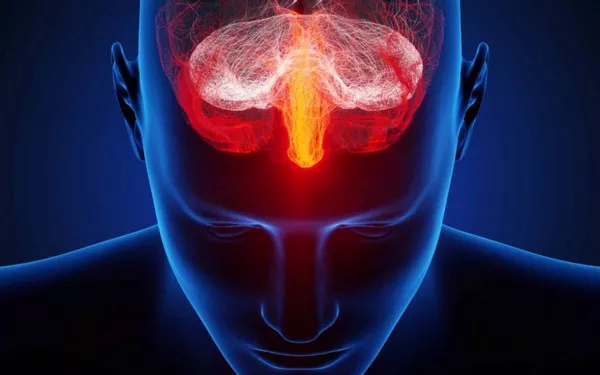Postpartum psychosis is a rare but serious mental health condition that can occur in individuals shortly after giving birth. It is crucial to understand the symptoms and characteristics of postpartum psychosis to ensure timely intervention and support. In this article, we delve into the complexities of postpartum psychosis, exploring its signs, risk factors, and the importance of seeking professional help. By raising awareness and promoting understanding, we can enhance early detection, support affected individuals, and foster a supportive environment for postpartum mental health.
Postpartum Psychosis:
Postpartum psychosis is a severe psychiatric condition characterized by a sudden onset of psychotic symptoms following childbirth. It is estimated to affect approximately 1 to 2 in every 1,000 women who have recently given birth. While the exact causes of postpartum psychosis are not fully understood, it is believed to result from a combination of hormonal, genetic, and environmental factors.
Symptoms of Postpartum Psychosis:
Postpartum psychosis typically emerges within the first two weeks after childbirth, and its symptoms can escalate rapidly. Recognizing these symptoms is crucial for early detection and intervention. Common signs of postpartum psychosis include:
a. Delusions: Individuals may experience false beliefs that are irrational, grandiose, or paranoid. Delusions may revolve around themes related to the baby, self-harm, or conspiracy.
b. Hallucinations: Perceiving sensory experiences that are not grounded in reality is another hallmark of postpartum psychosis. Hallucinations can involve seeing, hearing, smelling, or feeling things that do not exist.
c. Confusion and Disorientation: Individuals may exhibit signs of confusion, have difficulty focusing or making decisions, and may appear disoriented or detached from reality.
d. Extreme Mood Changes: Intense mood swings are common in postpartum psychosis, including episodes of euphoria, irritability, agitation, or extreme sadness. Rapid shifts in emotions can occur within short periods.
e. Sleep Disturbances: Disrupted sleep patterns, such as insomnia or a reduced need for sleep, are frequently observed in postpartum psychosis.
f. Rapid Speech and Racing Thoughts: Individuals may experience pressured speech, talking rapidly and incoherently. Their thoughts may race, making it challenging to maintain a coherent conversation or follow a logical sequence of ideas.
g. Disorganized Behavior: Postpartum psychosis can lead to erratic or unpredictable behavior, such as impulsivity, excessive energy, or neglecting personal hygiene and self-care.
h. Thoughts of Harm: In some cases, individuals with postpartum psychosis may have thoughts of harming themselves, the baby, or others. These thoughts are considered a medical emergency and require immediate intervention.
Risk Factors for Postpartum Psychosis:
While postpartum psychosis can occur in any individual who has recently given birth, several factors increase the risk. These include:
a. Previous History of Postpartum Psychosis: Individuals who have experienced postpartum psychosis in a previous pregnancy have a higher likelihood of recurrence in subsequent pregnancies.
b. Personal or Family History of Bipolar Disorder: Individuals with a personal or family history of bipolar disorder or other mental health conditions, particularly those involving psychosis, are at an increased risk.
c. Lack of Social Support: Limited social support and inadequate access to healthcare resources can contribute to increased vulnerability to postpartum psychosis.
d. Sleep Deprivation and Stress: Sleep disturbances, chronic stress, or a significant life event during the perinatal period can exacerbate the risk of postpartum psychosis.
e. First-Time Pregnancy or Multiple Births: First-time mothers or those carrying multiple pregnancies have a slightly higher risk of developing postpartum psychosis.
Differentiating Postpartum Psychosis from Baby Blues and Postpartum Depression:
It is important to distinguish postpartum psychosis from less severe postpartum mood disorders, such as the baby blues and postpartum depression. While baby blues and postpartum depression involve feelings of sadness, irritability, and mood swings, postpartum psychosis is characterized by more severe symptoms, including hallucinations, delusions, and disorganized behavior. Timely identification and professional assessment are crucial for accurate diagnosis and appropriate management.
Seeking Professional Help and Treatment:
Postpartum psychosis requires immediate medical attention and treatment. Healthcare providers, such as obstetricians, psychiatrists, or mental health professionals, should be involved in the care of individuals experiencing postpartum psychosis. Treatment typically involves a combination of medication, such as antipsychotic or mood-stabilizing medications, and psychological support, including therapy and counseling. In severe cases, hospitalization may be necessary to ensure the safety and well-being of both the individual and the baby.
Conclusion:
Postpartum psychosis is a serious condition that requires prompt recognition and intervention. Understanding its symptoms, risk factors, and the importance of seeking professional help is crucial for the well-being of affected individuals and their families. By fostering awareness, supporting affected individuals, and providing accessible mental healthcare, we can ensure that no one faces postpartum psychosis alone. Early detection, intervention, and ongoing support pave the way for recovery, resilience, and improved postpartum mental health outcomes.

